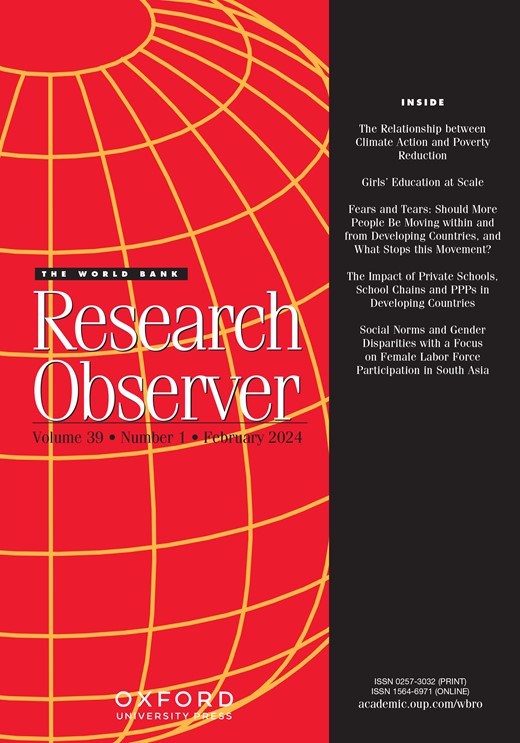世界银行应该如何看待“华盛顿共识”
IF 3.3
1区 经济学
Q1 DEVELOPMENT STUDIES
引用次数: 668
摘要
近年来,“华盛顿共识”一词在发展政策圈已经成为一个熟悉的术语,但现在它被用于几种不同的含义,造成了很大的混乱。在这篇文章中,作者区分了他最初的意思是对华盛顿机构提出的政策建议的最低公分母的总结,以及后来用来表示新自由主义或市场原教旨主义政策的术语。他认为,后一种政策不能指望为消除贫困提供一个有效的框架,但最初的建议仍然广泛有效。文章讨论了解决这种混乱的其他方法。报告认为,任何旨在消除贫困的政策宣言都需要超越最初的版本,但报告最后警告说,目前还没有就更广泛的议程达成共识。本文章由计算机程序翻译,如有差异,请以英文原文为准。
What should the world bank think about the Washington consensus
The phrase ' Washington Consensus ' has become a familiar term in development policy circles in recent years, but it is now used in several different senses, causing a great deal of confusion. In this article the author distinguishes between his original meaning as a summary of the lowest common denominator of policy advice addressed by the Washing based institutions and subsequent use of the term to signify neoliberal or market-fundamentalist policies. He argues that the latter policies could not be expected to provide an effective framework for combating poverty but that the original advice is still broadly valid the article discusses alternative ways of addressing the confusion. It argues that any policy manifesto designed to eliminate poverty needs to go beyond the original version but concludes by cautioning that no consensus on a wider agenda currently exists.
求助全文
通过发布文献求助,成功后即可免费获取论文全文。
去求助
来源期刊

World Bank Research Observer
Multiple-
CiteScore
12.60
自引率
1.20%
发文量
8
期刊介绍:
The World Bank Journals, including the Research Observer, boast the largest circulation among economics titles. The Research Observer is distributed freely to over 9,100 subscribers in non-OECD countries. Geared towards informing nonspecialist readers about research within and outside the Bank, it covers areas of economics relevant for development policy. Intended for policymakers, project officers, journalists, and educators, its surveys and overviews require only minimal background in economic analysis. Articles are not sent to referees but are assessed and approved by the Editorial Board, including distinguished economists from outside the Bank. The Observer has around 1,500 subscribers in OECD countries and nearly 10,000 subscribers in developing countries.
 求助内容:
求助内容: 应助结果提醒方式:
应助结果提醒方式:


